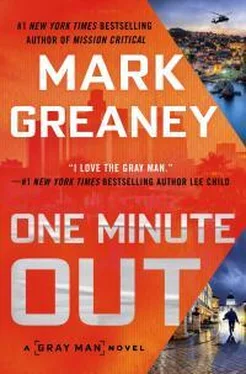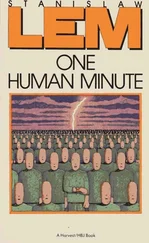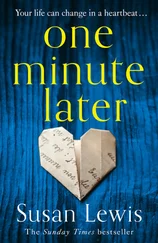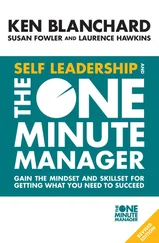These men had killed before, and they were confident they had it down.
The passenger in the van made a call on his mobile, waited a moment, then said, “He’s home; his security has left for the night. No, they didn’t even stay with him. I’ll text you the address. Fifteen minutes from the hotel. Karoly and I can do it right now if you want.”
“No,” came the reply. “We have a plan. We are sticking to it. Tomorrow night, all three of us.”
“ Oke’ , boss. You want us to stay here?”
“For another hour. Just to make sure he doesn’t have any visitors.”
“Mergertem.” I understand. The Hungarian in the passenger seat ended the call, then looked to the driver. “Wouldn’t be hard. Small-town Bosnian police chief. What’s the big deal?”
“You know Zente. If he makes a plan, you are not going to change it.”
“Yeah,” the other man said. “He does like to be the boss, doesn’t he?”
• • •
The road where the van sat had a good view to the building across the tiny square, but from the Hungarians’ vantage point they were unable to see a darkened alcove in front of a small mosque to the right of the intersection in front of them. There, a lone woman stood in a black raincoat, and she kept her eyes on the same building as the men on her left, who she was also unable to see.
Talyssa Corbu was twenty-nine years old, thin, with small elvish facial features and short dyed red hair mostly hidden by the hood of her jacket. She was a foreigner here in Bosnia and, also like the men sitting thirty meters to her left in the van, she was associated with law enforcement.
This was Talyssa’s second day in Mostar. On the first she’d staked out the police station for ten hours before seeing what she wanted to see, and then she had followed Niko Vukovic home. She’d come back this morning, saw him head in to work around ten a.m., and then tried breaking into the man’s apartment building in broad daylight. But Vukovic had good locks and a better security system, and his building had several other units nearby. Moreover, he lived next door to a private day care that created a lot of come-and-go activity on the sidewalk out front during the daytime hours.
So she had abandoned this plan, and instead she spent the day here in the tiny little park at the center of the square a kilometer north of the Old Bridge, waiting for Vukovic to come home.
Now she waited for his light to switch off.
Minutes later it did, and then Talyssa Corbu wrote the time down and began walking away.
Tomorrow, she told herself. Tomorrow she’d get what she came for.
It was a good line for her to repeat through her head, but the truth was she had little real confidence in her plan.
Unlike the Hungarians, Corbu was not here on the job for anyone. No, this was personal, as personal as things got. She was in a foreign country planning on extracting information from a city police chief, and she had no training whatsoever to do so.
But she also had no choice.
She made her way back to her hotel a few minutes later, climbed the stairs to her room, all the while trying to come up with a better plan than the one she had now, because she worried that the one she had now would get her killed long before she found what she was looking for.
NINE
Liliana and I get up at five a.m. and drive to Sarajevo, arriving at the main train station at eight, right in the middle of the morning flow of commuters. Since she doesn’t have a passport, I spend most of the drive from Mostar talking her through the tradecraft I employ to avoid immigration officials on trains, and as soon as we arrive I book her a long, circuitous trip that will take her north into Croatia, then northeast into Hungary, then south into Romania, then finally east to Moldova. With a little luck and the info I give her she’ll make it home fine, and I also hand her five thousand euros in case she needs to drop some bribes along the way to ensure all goes smoothly, as well as to help her get started when she makes it back home.
This route will keep her out of Serbia, and I make her promise to get off the train in Moldova before she gets to Tiraspol, where she can take a local bus to her little town.
She’ll be fine, I tell myself. At least in the short term.
Long term? I don’t know what this experience has done to her, but I can take a guess.
I feel bad for Liliana, because even if this is over for her . . . it’s not over for her.
The public address system announces the boarding of the train to Zagreb, and Liliana looks up at me without speaking.
“Take care of yourself” is all I can manage.
She hesitates, and I realize she’s trying to think of something to say, as well. I figure she could just say Thanks , but I’ve got her all wrong.
“The other girls, Harry. They are not like me. They don’t deserve what happened to them.”
Jesus. This woman is so psychologically damaged I don’t know if she’ll ever recover. It’s the most depressing thing I’ve seen in the past day. Not the violence, the murder, the kidnapping, the rape. It’s the fucking with people’s brains that is the end result of shit like this.
Like someone once fucked with mine.
This world. I swear to God. If there weren’t just a few good people left in it I’d burn it down to the ground with me inside.
I wish I had a way to make her understand that what happened to her isn’t her fault, but I’m not that guy. All I say is, “Go home. Be safe. Find out what makes you happy, and then do it. Everybody’s got to do something that makes them happy.” I give her a smile, or my version of one. It’s stressed, tired, forced . . . but it’s all I’ve got at a moment like this.
She nods and boards the train. I wonder about her, whether she’ll go back to her village or whether she’ll go back to Tiraspol to start turning tricks again. I have no idea.
I’m a gunfighter. Full stop. So much of the other stuff that happens around me is over my head.
I tell myself this so I don’t think about it too much, but it doesn’t really work.
I think about it all the time.
A minute later I’m in my Jeep, heading back to Mostar, ready to beat the holy fuck out of some piece-of-shit dirty cop because, just as I told Liliana, everybody’s got to do something that makes them happy.
• • •
Shortly before ten p.m., the three Hungarian police officers working for the Slovakian mob stood in the shadows of a side street just twenty-five meters from the foyer to Vukovic’s old building, smoking cigarettes and doing their best to control the adrenaline that had been rising in their bodies all day as the moment their target arrived home from work approached.
Their plan was straightforward, but it had worked for them in the past in similar situations. When his vehicles pulled up out front, they’d start walking along in that direction, just three men out for an evening stroll.
And then, when Vukovic and his two guards were close to them on the sidewalk, the three Hungarians would pull pistols. Two would shoot the three on foot, while the third man would empty his handgun into the driver-side windshields of the two SUVs on the curb.
Three men attacking five didn’t sound like great odds, but the Hungarians knew they would have complete surprise on their side, and they were confident killers.
The leader of the group looked down at his phone. “Should be leaving the station about now. Probably another ten minutes till he’s here.”
Karoly replied, “We’re ready.”
And Florian said, “Quick and dirty. Like last year in Maribor.”
Zente, the leader, nodded. “Just like Maribor.”
Читать дальше












